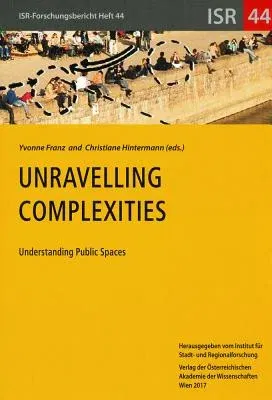Unravelling Complexities: Understanding Public SpacesPaperback, 1 June 2017

Qty
1
Turbo
Ships in 2 - 3 days
In Stock
Free Delivery
Cash on Delivery
15 Days
Free Returns
Secure Checkout

Part of Series
Isr-Forschungsberichte
Print Length
185 pages
Language
English
Publisher
Austrian Academy of Sciences Press
Date Published
1 Jun 2017
ISBN-10
3700181337
ISBN-13
9783700181330
Description
Product Details
Book Format:
Paperback
Country of Origin:
US
Date Published:
1 June 2017
Genre:
Urban
ISBN-10:
3700181337
ISBN-13:
9783700181330
Language:
English
Location:
Vienna
Pages:
185
Publisher:
Series:
Weight:
449.06 gm